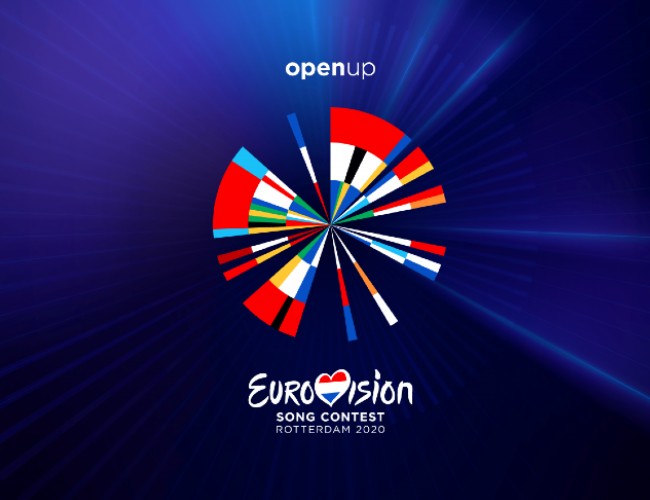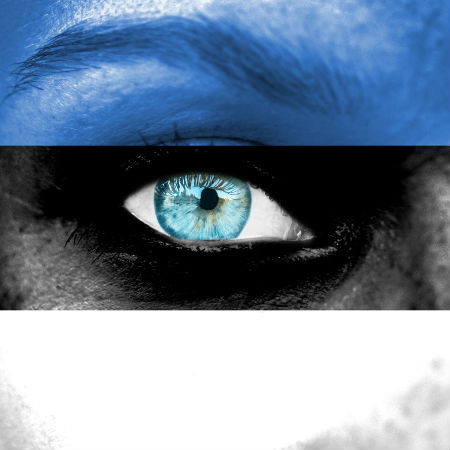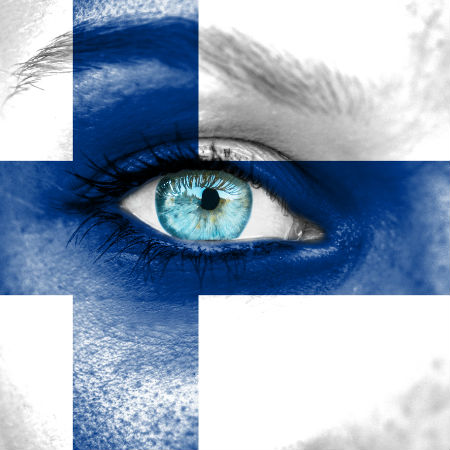
This is normally how I begin these review posts …
What is the Eurovision Song Contest?
Started way back in 1956 as a way of drawing a fractured Europe back together with the healing power of music, the Eurovision Song Contest, or Concours Eurovision de la Chanson – the contest is telecast in both English and French – is open to all active members of the European Broadcasting Union, which oversees the competition.
Each country is permitted to submit one three-minute song to the contest – a song which is selected by a variety of means, usually a winner-takes-all competition such as Sweden’s renowned Melodifestivalen – which they perform in one of two semi-finals in the hopes of making it to the glittering grand final.
Only six countries have direct entry into the grand final:
- The Big Four who fund most of the contest – UK, Germany, France and Spain
- The host country (which is the winner of the previous year’s contest)
- Italy, who didn’t take part for many years and was re-admitted in 2011 after a 14 year absence (it was one of seven countries that competed in the first event), making the Big Four the Big Five.
The winner is chosen by a 50/50 mix of viewer votes (you cannot vote for your own country) and a jury of music industry professionals in each country, a method which was chosen to counter the alleged skewing of votes based on political and/or cultural lines when voting was purely the preserve of viewers at home.
Past winners include, of course, ABBA in 1974 with “Waterloo” and Celine Dion who won for Switzerland in 1988 with “Ne partez pas sans moi”.Above all though, the Eurovision Song Contest is bright, over the top and deliciously camp, a celebration of music, inclusiveness and togetherness that draws annual viewing figures in the hundreds of millions.
But of course, with the Eurovision Song Contest 2020 cancelled, like so many other things this year, by the viral threat of COVID-19, no one will be singing their songs all together in front of a huge crowd in host city Rotterdam, and we will have to make to do with weekly Eurovision Home Concerts and a recently announced replacement for the grand final show Eurovision: Europe Shine a Light which will “honour the 41 selected songs for Eurovision 2020 in a non-competitive format.”
The decision to cancel the show is sad but makes perfect sense in the current situation; still, it begs the question, is there any point reviewing the already released songs for this year’s contest?
I decided “YES”, partly as a way of giving the songs and their artists their due and their moment in the Eurovision – many of the singers will be back next year but not the songs with rules prohibiting the same song being submitted again by a country – but also to keep alive that sense of Eurovision fun and artistry which for many of us makes this time of the year so very special.
So grab your glitter, fire ip the wind machine, gather together your appreciative hosting superlatives and enjoy these song reviews, the first of seven such posts, which are written as if the contest was still happening.
ESTONIA: “What Love Is” by Uku Suviste

THE ARTIST
Like many a Eurovision entrant before him, 37-year-old Uku Suviste got things off to a very early start musically.
At the age of six, when most kids are happy to colour within the lines and not spill juice down the front of their school uniforms, Suviste enrolled in a specialised music class at Tallinn School No. 21 as well joining the Tallinn Boys Choir and the school’s own boys choir.
Almost 10 years later, and after the guidance of his solfeggio (ancient six-tone scales used in sacred music including Gregorian chants) teacher, Lydia Rahula, Suviste was studying piano at the Tallin Music School, which was followed by time at the Georg Ots Tallinn School of Music studying pop jazz singing (with stops along the way for military service and the acquisition of computer systems admin qualifications; guessing his mum wanted something for him to fall back on if the music gig failed?).
If you think that’s plenty of music study, you’d be wrong because Suviste also spent 1 1/2 years studying at the singing, contemporary writing and music production at the Berklee College of Music in Boston, Massachusetts, USA.
That’s a lot of plaques on the wall testifying to his musical prowess but to those studious accomplishing you can plenty of singing contests, TV shows and festivals, and now, of course, Eurovision with Suviste winning Eesti Laul, the Estonian Eurovision selection process, after several unsuccessful attempts.

THE SONG
The man with the deeply resonant, emotive voice, and trust me it’s there in spades, knows his way around a thumpingly powerful song of love.
“What Love Is”, and it’s all there in the title if you’re paying attention, is all about staring up at the skies, finding out you don’t have to be alone and that love is there if you just look for it.
It’s a theme cookie cutter made for Eurovision, but shelve your cynicism because Suviste throws all kinds of authentic-sounding emotional intensity into a song that starts out slow and steady before putting the ecstatically revelatory pedal to the metal and going for broke, musically, lyrically and emotionally.
It’s not highly original as these types of songs go but it’s a bit of powerful emotive pop that delivers the goods.
Likely not enough to win Estonia the contest but “What Love Is” has got enough fervency of new belief and vivacity of awakening to something new and wonderful to garner more than enough votes to put the country into the grand final.
FINLAND: “Looking Back” by Aksel

THE ARTIST
Aksel is a child of reality TV singing contests.
Once upon a time that would have been a pejorative but it’s now almost a rite of passage for many aspiring music artists with Aksel Kankaanranta, as he’s known away from the mononym-heavy environment of his showbiz career, taking part in The Voice of Finland in 2017.
Though he has chosen a very public profession, he is at heart a very shy person, preferring to spend his free time singing to his dog Topi (who hopefully shares his master’s taste in music) and listening to vinyl records.
So does the self-admitted introvert think it strange that he’s taken up singing as a career? Not really …
“People ask me why I want to appear in front of an audience of a million even though I’m shy. Why should that be a problem?”
Not really answering the question there Aksel, who has confirmed in the wake of Eurovision 2020’s cancellation that will compete for the honour of representing Finland again next year, but you’re heady with all the possibilities that a musical career brings so we’ll leave you with your rhetorical responses and just (hopefully) enjoy the song you have chosen to sing.

THE SONG
“Looking Back” is a ruminative song that ponders the fact that we often don’t know how good we have it until we don’t have it anymore.
It’s a very Joni Mitchell “Big Yellow Taxi” statement of mind, a meditative state of thoughtfulness that suits Aksel’s shy persona but which interestingly comes with an ever-escalating pop melody that makes perfect use of his affectingly emotive voice.
He is very much a singer who doesn’t just sing the words but lives them, his heart very much on his sleeve, an artistic sensibility that invests the song with more emotional punch than it might otherwise have.
The song, by the veritable committee of Joonas Angeria, Whitney Phillips, Connor McDonough, Riley McDonough, Toby McDonough (the three brothers are part of the American band Before You Exit), is charmingly piece of heartwarmingly uptempo pop that in and of itself is sweet but not especially memorable.
It’s a thoroughly enjoyable song that should do nicely for Finland but which could very easily getting beaten out by other more compelling tracks.
GEORGIA: “Take Me As I Am” by Tornike Kipiani

THE ARTIST
Another child of the now-ascendant reality TV singing show phenomenon, Tornike Kipiani won the first series of X Factor Georgia, a heady bit of success that also gave him his first (admittedly not yet realised at the time) taste of Eurovision magic with Tamta, who represented Cyprus at Eurovision in 2019, acting as his mentor on the program.
Having fallen into singing at the age of 19 when his band needed a vocalist and he decided to fill in while they searched for one – spoiler alert: he was so damn good at the job that he kept it; withdraw the classified ad will ya? – the qualified architect and father-of-three has made a rather successful go of his unexpected vocal-centric career.
While he wasn’t successful at his first attempt at representing Georgia at Eurovision, with his industrial techno song “You Are My Sunshine” not winning the hearts and minds of his presumably more placid countrymen and women, he succeeded with “Take Me As I Am” which sounds uncomfortably like, for anyone with an evangelical Christian background, but is, you’ll be relieved, is all about love of a far more romantic kind.

THE SONG
Good lord but this is a very cool song.
Darkly resonant, hauntingly atmospheric as hell, “Take Me As I Am” is a bristlingly emotive piece of songwriting and singing.
It sizzles with a plaintively powerful cry to a presumed lover to dispense with all the superficial expectations and the unsuccessful attempts to shove a square Georgian peg in a German/Spanish/French etc round hole, and to just take him as he is.
Anguished cries for authentic love and a rousing desperation fill a song that comes replete with a brooding melody that surges with power and conviction as Kipiani’s intensely-affecting voice well and truly delivers the vocal goods.
It’s a distinctive, arresting song that could, with the right staging which I believe Kipiani has every chance of delivering and then some, stop the Eurovision show in all the very best ways and catapult Georgia into the grand final and a top 10 finish overall.
GREECE: “SUPERG!RL” by Stefania

THE ARTIST
It’s mononym time again with Greek-Dutch singer Stefania Liberakakis dispensing with the surname, professionally at least, in search of pop stardom.
Getting going early on her path to hoped-for musical success, Stefania convinced her parents to let her enter The Voice Kids in the Netherlands when she was just 10, and while that didn’t lead to a win, it did usher in a two-year membership of children’s choir Kinderen voor Kinderen, and subsequent representation for the Netherlands at Junior Eurovision 2016 s part of the all-girl group Kisses.
She’s followed this first taste of Eurovision glory with four singles, a TV acting gig in the show Bruglas and in three Dutch movies, as well making a name for herself as an active YouTuber.
That’s a lot going on when you’re a 17-year-old to which she can also add representing Greece at the 2020 Eurovison Song Contest (Greek public broadcaster ERT announced Stefania now has the 2021 gig in light of the COVID-19 related cancellation of this year’s contest).

THE SONG
Able to command toothbrushes to levitate and add even more lustre to her already dazzling sparkly whites, Stefania is clearly the more-than-able protagonist of her song “SUPERG!RL”.
Channelling her inner levitating queen – trust us, the toothbrush is just the beginning! – Stefania delivers up a insanely catchy piece of Greek folk-influenced pop that is all modern #MeToo feminist anthem mixed with some ancient sounds that are given a pleasing contemporary sheen.
While the song isn’t anything you haven’t heard on the charts a thousand times over, Stefania grants it extra zest, adding some fun and vivacity that a song will no doubt also benefit from a eyecatching piece of stagecraft.
It won’t likely grant Greece first prize bragging rights but it’s going to do very nicely taking the country into the grand final into which Stefania will levitate rather than walk, thank you very much.
ICELAND: “Think About Things” by Daði og Gagnamagnið

THE ARTIST
Much has been made of appealingly idiosyncratic Icelandic singer Daði Freyr who, even before Eurovision had got going in earnest was attracting all the very best kinds of attention.
He and his band Gagnamagnið (which features his wife Árný Fjóla Ásmundsdóttir on keyboards), also known as Daði & Gagnamagnið, began their highly-successful time together back in 2017 when the latter supported the former during his performance at Iceland national Eurovision selection contest Söngvakeppnin.
While Daði Freyr Pétursson, as he is known to Iceland’s tax department, didn’t win that year – the honour went to Svala Björgvinsdóttir with her song “Paper” – it obviously fuelled the fire in the belly of the artist who is described by his Eurovision bio as part of the “Icelandic disapora”, resident in Berlin, Germany.
He is very family-oriented with his two sisters providing backing vocals to “Think About Things”, his wife on keyboards and the video that accompanies the song ending, rather poignantly, in the words again of his Eurovision bio, “[with Daði] surrounded by his family, reaching out to Europe.”
But will Europe receive this familial entreaty in the way that it’s intended?

THE SONG
How could they not?
Not only is the song a gorgeously idiosyncratic piece of infectiously catchy upbeat synth-driven pop, but it’s performed with a delightfully daggy aesthetic, an affectionate Australian-sourced description that describes something or someone who is a little off the mainstream and frankly odd.
It’s clear that this is deliberate look and sound for the artist who clearly has very well thought ideas about what he wants to say and how we wants to say it, as his Eurovision bio makes plain.
“The song is designed to be seen by the world, all part of his complex masterplan, coupled with the stunning live performances and the viral video.”
It is giddily, happily, joyfully exuberant, the kind of song you want to smile to, sing to and dance to and which, if early indications are any indication, Europe is going to love and adore with love unbounding.
LATVIA: “Still Breathing” by Samanta Tīna

THE ARTIST
While her 31-year-old birth certificate may say Samanta Poļakova, Latvia’s representative at the 2020 Eurovision Song Contest, prefers to be known professionally as Samanta Tīna.
A singer and composer who competed in and won the 2010 series of Latvian music show O!Kartes akadēmija which came with the alluring prize of studying at the Tech Music School in London, England, and then went on to great success in the Moldovan singing competition Golden Voices, a pattern repeated in subsequent competitions where Tīna’s repeated high placings marked her as a talent to watch.
And watch her people did as she competed multiple times to represent both Latvia and Lithuania at Eurovision (which means this year’s cancellation must really hurt as there’s no guarantee she will automatically be granted entrant status for Latvia for 2021):
“Samanta Tīna has competed in the Latvian selection for the Eurovision Song Contest no less than 6 times, finishing second twice – in 2012 and more notably in 2013 with the fan-beloved song, I Need a Hero. Not one to give up, Samanta has also twice attempted to represent her second home, Lithuania, in 2015 and 2017.” (Eurovision.tv)
Driven by a need to show that while Latvia might be small, it can make a big impression, Tīna is dedicated to the ideals of the contest, writing her 2019 graduating paper on an analysis of the national selections for the Eurovision Song Contest in Latvia and Lithuania.

THE SONG
All that hard work and commitment to the idea of competing at Eurovision comes home to winningly roost in “Still Breathing” which exudes brilliantly danceable, darkly electronic gravitas and pizzazz.
It’s a song that is as edgy as they come, and yet for all its avant garde markings, it’s decidedly listenable and catchy, a song redolent with a tremendous amount of emotional resonance as Tīna gives the song, which she co-produced, all she’s got.
“Still Breathing” feels intensely autobiographical with its lyrics speaking to the artist’s tenacity which she might need all over again if she doesn’t get an automatic entry to represent Latvia next year.
“I will keep on going, I will keep on running
Run until I reach the end
Strong enough to take it, I am gonna make it
Destiny is in my hands.”
Original as it is, and it’s definitely one of the standout tracks of 2020’s contest, it likely won’t take Latvia anywhere spectacular but by gods, we will be treated to a great song performed in spectacular fashion – Tīna is known for her memorable performances – and that’s all you really want from Eurovision, right?
Estonia and Georgia are in my personal Top 5 – I admit the aesthetics help there. A soft spot for Latvia, too. I didn’t listen well enough to Finland’s lyrics so must revisit.
Thanks again for a lovely review. There is so much negativity or trashing in some social media fan groups, it’s refreshing to read your blog.
Let’s hope the posts arrive in my inbox from now on.
Have a great day / night 😉